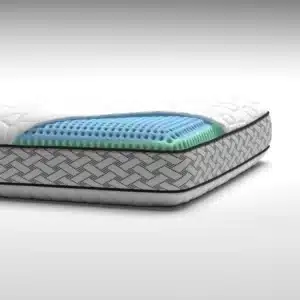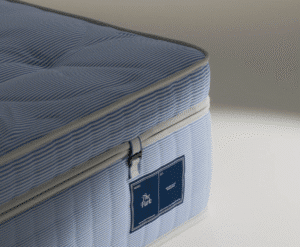The Hidden Cost of Sleep Debt: What You Need to Know
Understanding the hidden cost of sleep debt is crucial in safeguarding your health and enhancing your quality of life. Sleep debt refers to the gap between the sleep your body requires and the actual sleep you get. Think of it as borrowing hours; failing to repay can lead to dire consequences.
What is Sleep Debt?
Sleep debt, or sleep deficit, is the cumulative difference between your required sleep and the sleep you actually obtain. Each night you miss your optimal sleep amount, you’re accumulating debt. For instance, if you need eight hours of sleep but only get six, your sleep debt mounts to two hours. Over a week, that quickly adds up to 14 hours. This ongoing deficit not only exhausts you but can also strain your overall health.
The reality is, sleep loss is cumulative. Even missing just 20 minutes a night can add up alarmingly fast. Before you know it, you’re accruing significant sleep debt that can lead to various health issues.
Individual Sleep Needs
Understanding that sleep requirements vary is vital in combating sleep debt. Most adults need between seven to nine hours per night, while children and teenagers require even more—up to 11 hours for younger kids and eight to ten for teens. Recognizing your unique sleep needs is the first step to avoiding the pitfalls of sleep debt. Maintaining a sleep diary can reveal patterns in your sleeping habits and help pinpoint areas for improvement.
The Consequences of Sleep Debt
Physical Health Risks
Sleep debt does more than just make you feel tired. The ramifications can include serious physical health risks:
– Hypertension and Cardiovascular Issues: Chronic sleep deprivation can elevate your chances of high blood pressure and heart disease. The National Institutes of Health warns that sleep deficits disrupt your cardiovascular health, increasing susceptibility to severe conditions like coronary artery disease and stroke.
– Diabetes and Obesity: Your body struggles to regulate blood sugar when deprived of sleep, heightening your risk of developing diabetes. Research indicates that sleep-deprived individuals show impaired glucose tolerance, which can contribute to weight gain and obesity.
– Immune Function: Sleep is quintessential for optimal immune system function. Lack of adequate sleep can weaken your immune response, increasing your susceptibility to infections.
Mental Health Risks
Sleep deficiency doesn’t only take its toll on your body; it can also wreak havoc on your mind:
– Mood Changes and Increased Stress: Insufficient sleep can lead to irritability and heightened stress levels. Studies show that sleep-deprived individuals demonstrate increased activity in the amygdala, the brain’s fear center, heightening feelings of anxiety.
– Depression and Anxiety: The connection between sleep and mental health is intricate; chronic sleep deprivation can trigger or exacerbate conditions like depression and anxiety.
– Cognitive Decline: Sleep is essential for cognitive processes, including memory and decision-making. Lack of it can impair clear thinking, leading to decreased productivity and effectiveness in daily tasks.
How to Avoid Sleep Debt
Improving Sleep Hygiene
Good sleep hygiene is paramount in preventing sleep debt. Here are actionable tips to elevate your sleep habits:
1. Maintain a Consistent Sleep Schedule: Go to bed and wake up at the same time each day, even on weekends. This consistency helps regulate your body clock.
2. Create a Relaxing Bedtime Routine: Engage in calming activities, such as reading or meditating, to signal your body that it’s time to wind down.
3. Limit Caffeine and Heavy Meals Before Bed: Avoid consuming caffeine or heavy foods close to bedtime, as these can hinder your ability to drift off.
4. Exercise Regularly: Regular physical activity aids in falling asleep faster and achieving deeper sleep, but avoid intense workouts close to bedtime.
5. Minimize Screen Time: The blue light emitted by devices can disrupt melatonin production, so turn off electronics at least an hour before sleeping.
Optimizing Your Sleep Environment
Creating a conducive environment is equally vital for quality sleep:
– Invest in Comfort: A comfortable mattress and supportive pillows can significantly enhance your sleep experience.
– Regulate Temperature: Aim for a cooler room environment, ideally around 65°F (18°C), to facilitate better sleep.
– Control Light and Noise: Use blackout curtains to block light and employ earplugs or white noise machines to eliminate disruptive sounds.
How to Recover from Sleep Debt
Effective Napping
Short naps can be effective for recovering from sleep debt. Aim for a brief power nap of 10 to 20 minutes to boost energy without inducing grogginess. Studies highlight that even a short nap can improve memory and alleviate fatigue.
Weekend Sleep Strategies
While sleeping in on weekends can help, it may not entirely compensate for accumulated sleep debt. However, it can ease the symptoms of sleep deprivation. Strive for consistency by only allowing a 1-2 hour extension beyond your usual wake-up time for optimal recovery.
Gradual Recovery
Recovering from sleep debt isn’t instantaneous—incrementally add 15 to 30 minutes to your sleep time. Monitoring your progress through a sleep diary can assist in identifying patterns and refining your habits.
Frequently Asked Questions about Sleep Debt
– Can You Recover from Sleep Debt? Yes, recovery is possible, but it requires time and dedication. Gradually increase your sleep until it meets your needs while improving your sleep hygiene.
– Is Sleep Debt Really a Thing? Absolutely. Sleep debt can accumulate quickly and lead to severe health consequences, including increased risks of chronic conditions and cognitive decline.
– Can You Undo Years of Bad Sleep? While challenging, recovery is feasible through consistent, quality sleep. Committing to adequate rest can lead to improvements in health and well-being over time.
Conclusion
Sleep is not merely a luxury; it is the backbone of our long-term health and well-being. Neglecting it leads to accumulating sleep debt, which can usher in severe health concerns like hypertension, diabetes, and cognitive decline. The journey to optimizing your sleep is not only about the hours you log at night; it’s about embracing effective strategies for improvement.
The benefits of prioritizing sleep extend beyond just feeling refocused; they encompass enhanced overall health and vitality. By investing time and resources into better sleep habits and environments, you can pave the way for a brighter, healthier future. So, take the first step today—your body and mind will thank you.


















